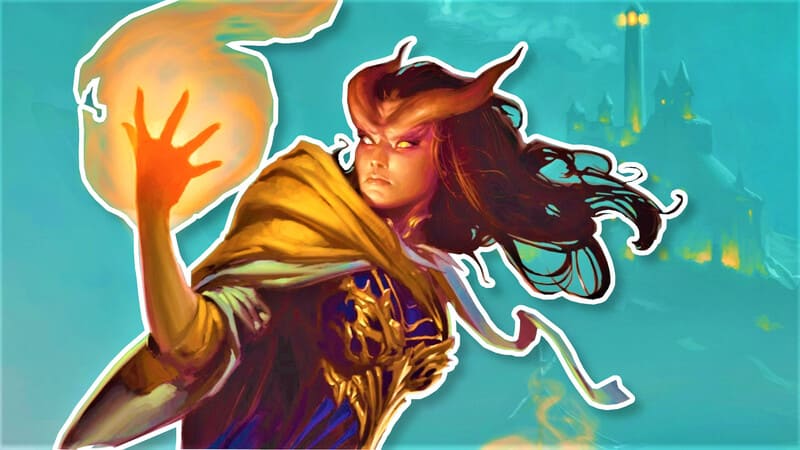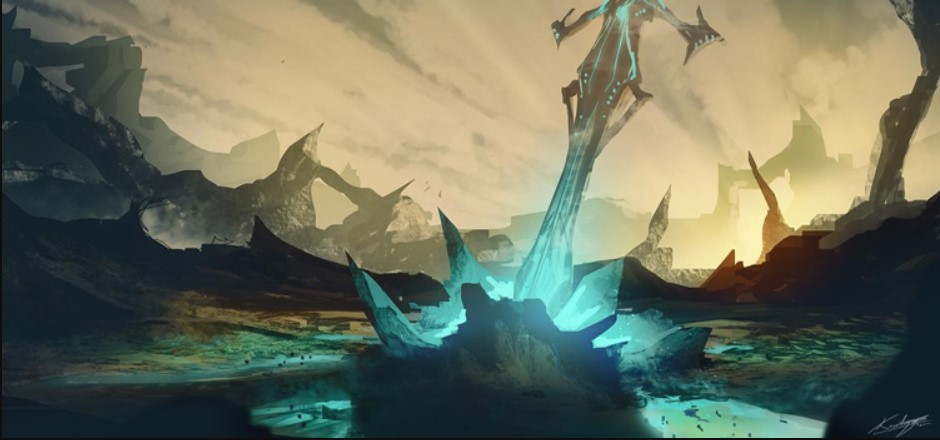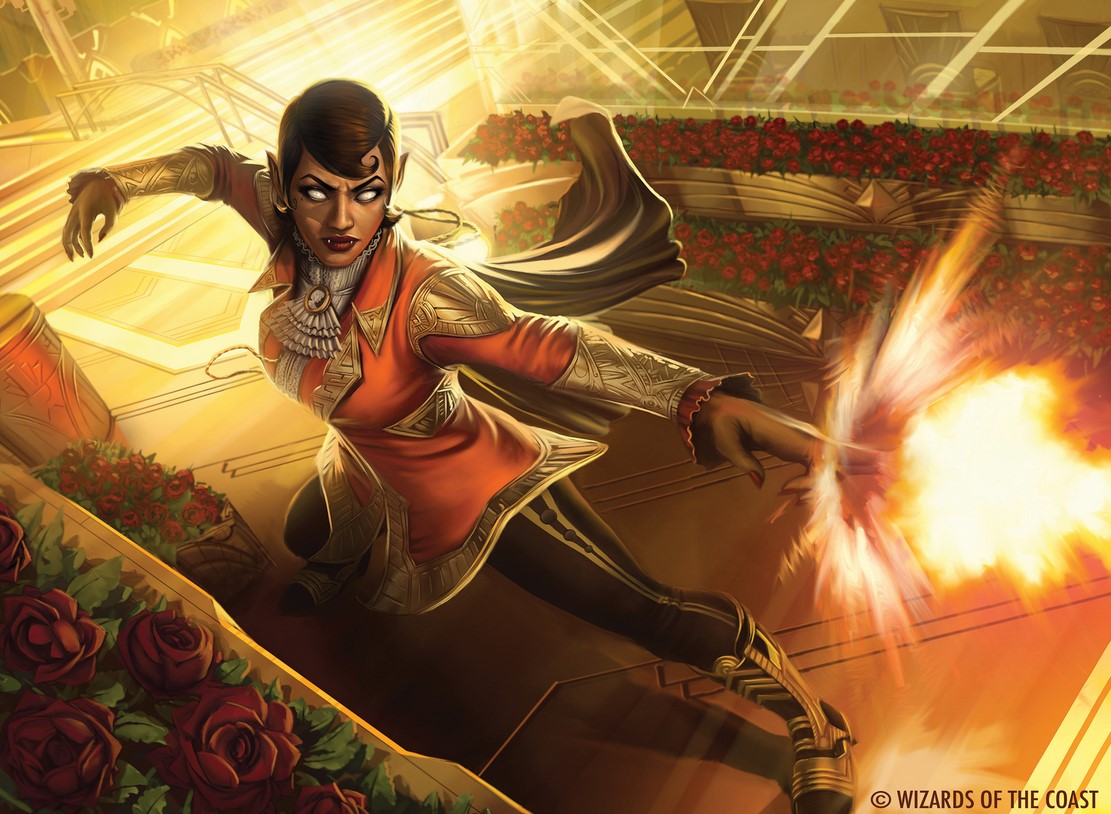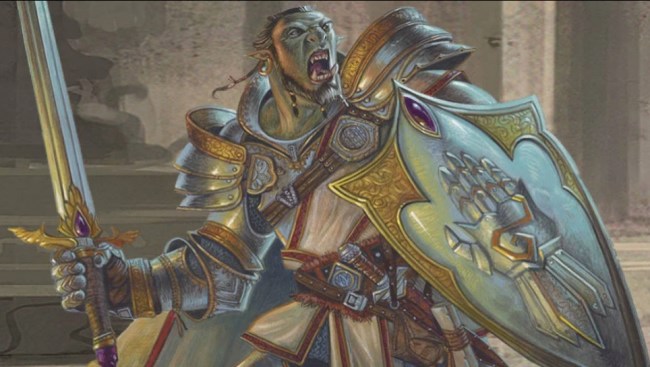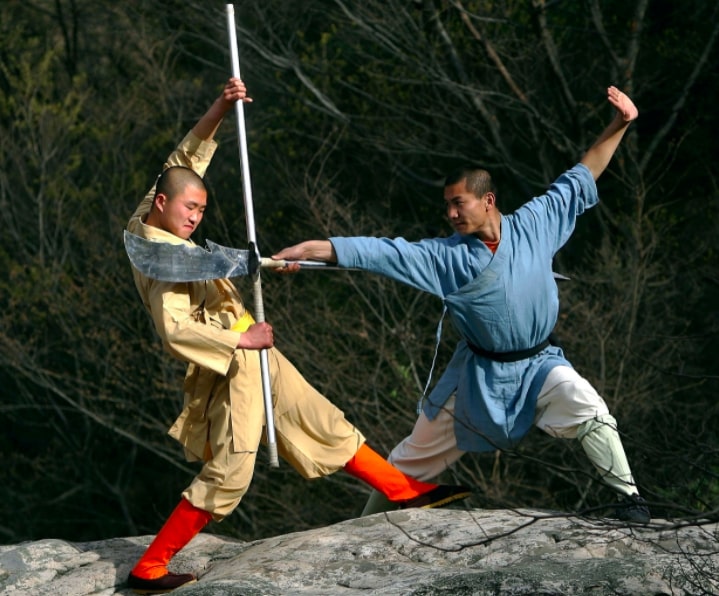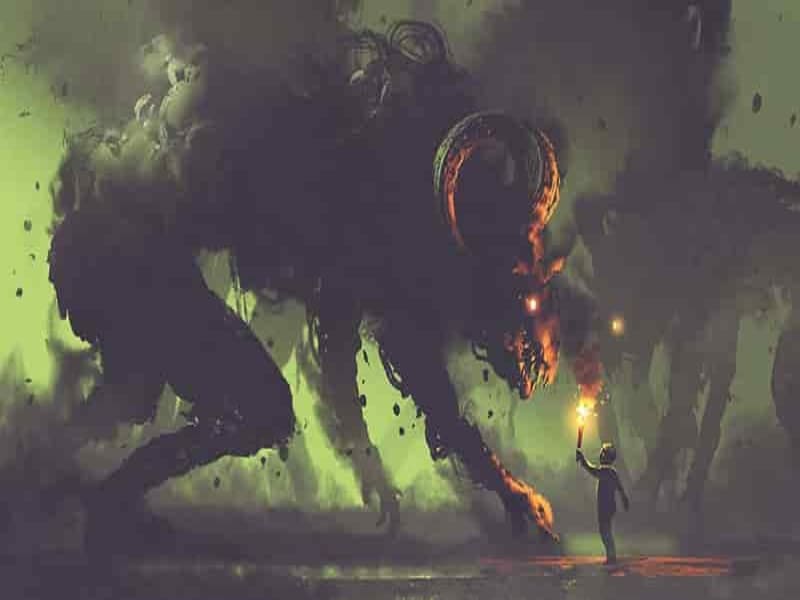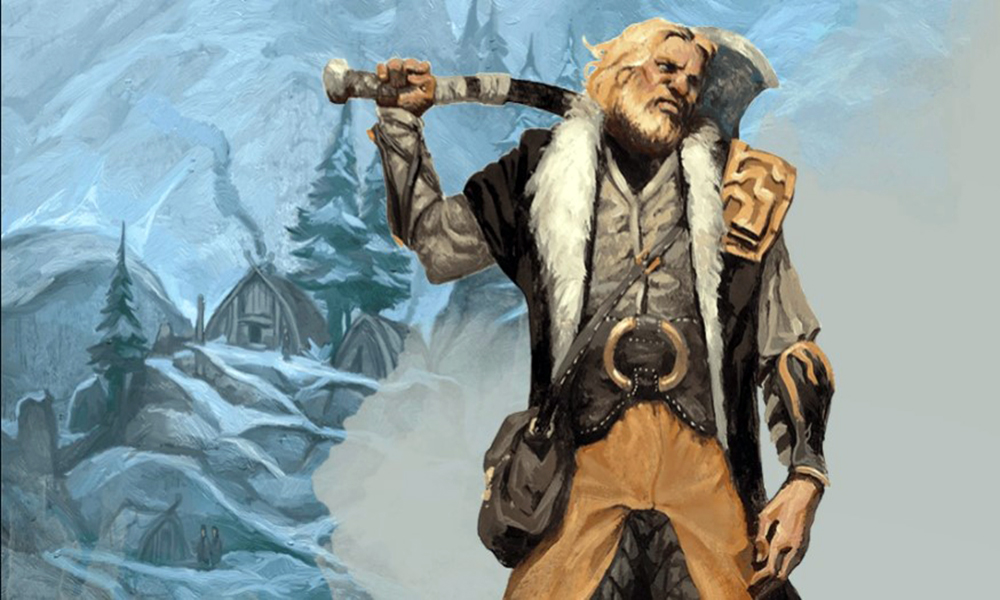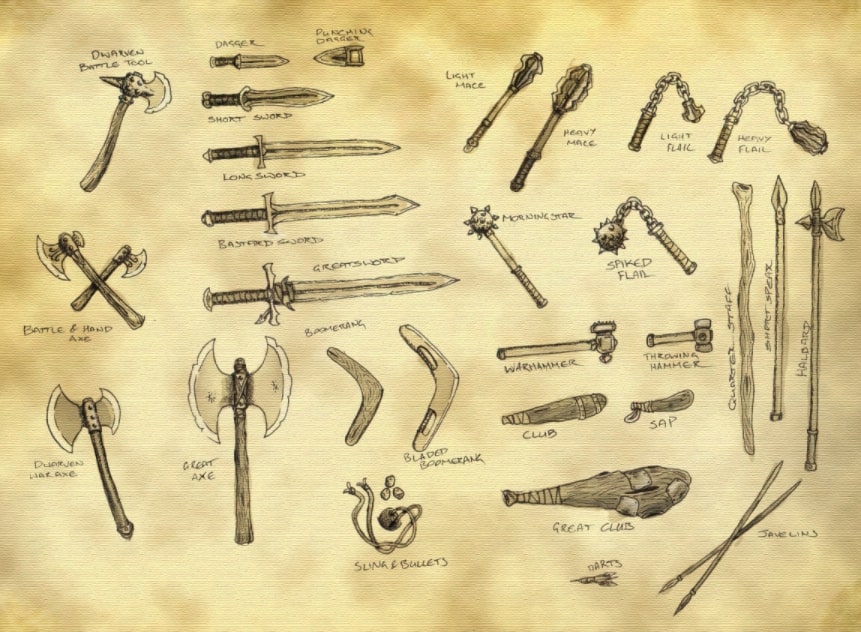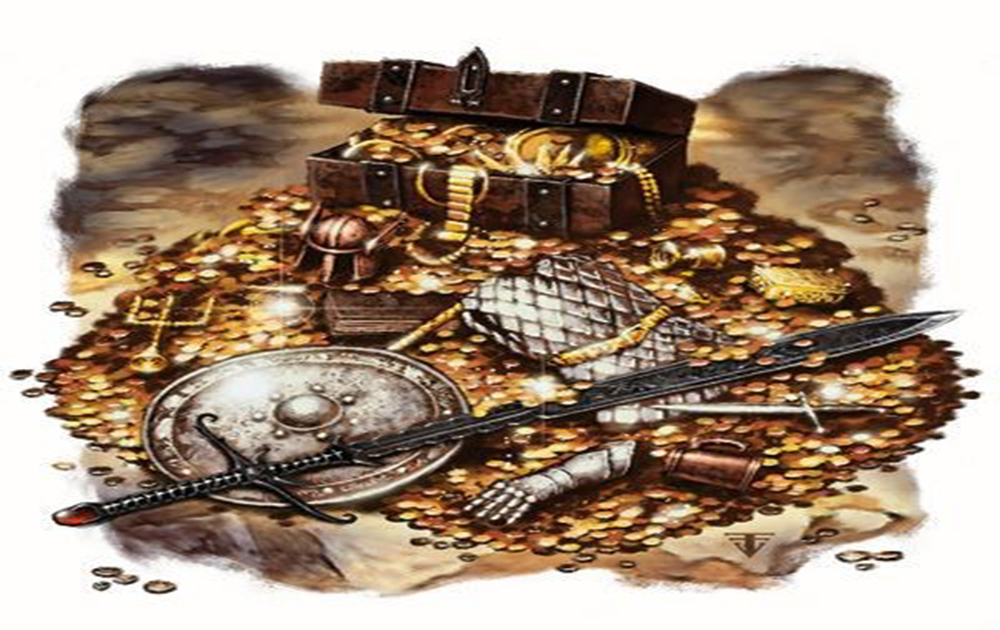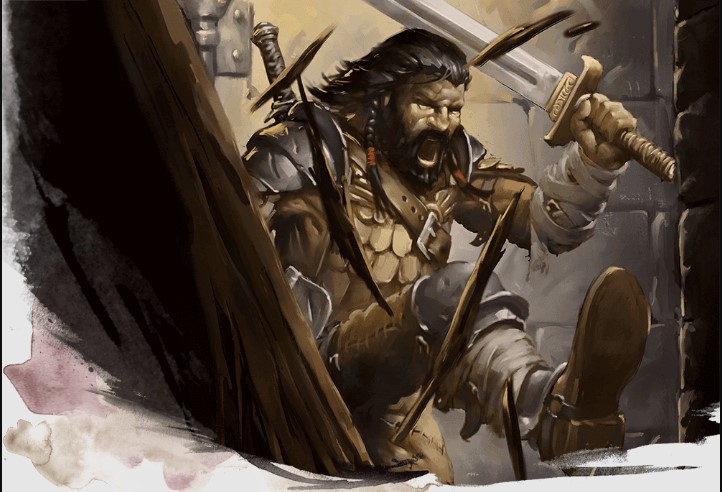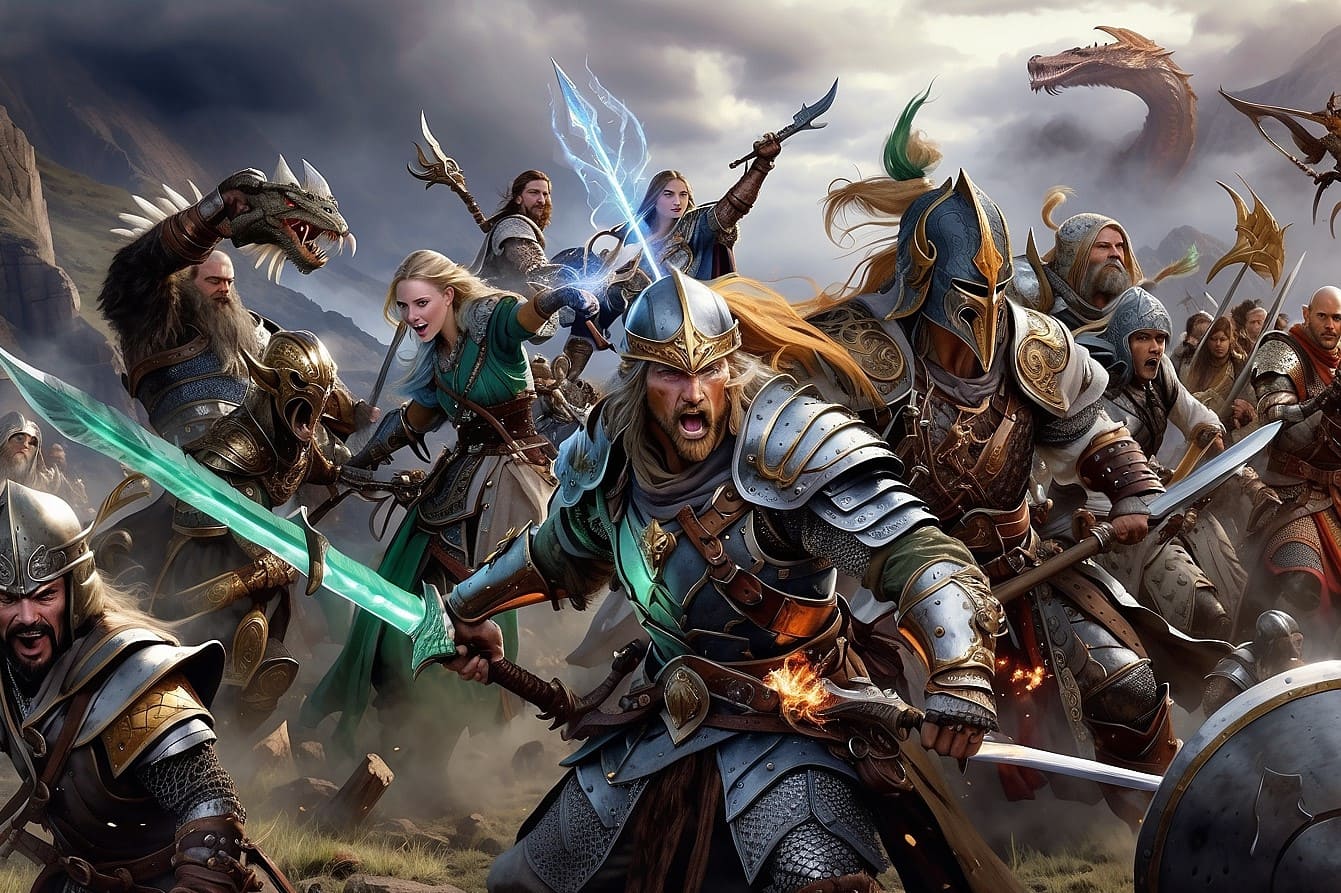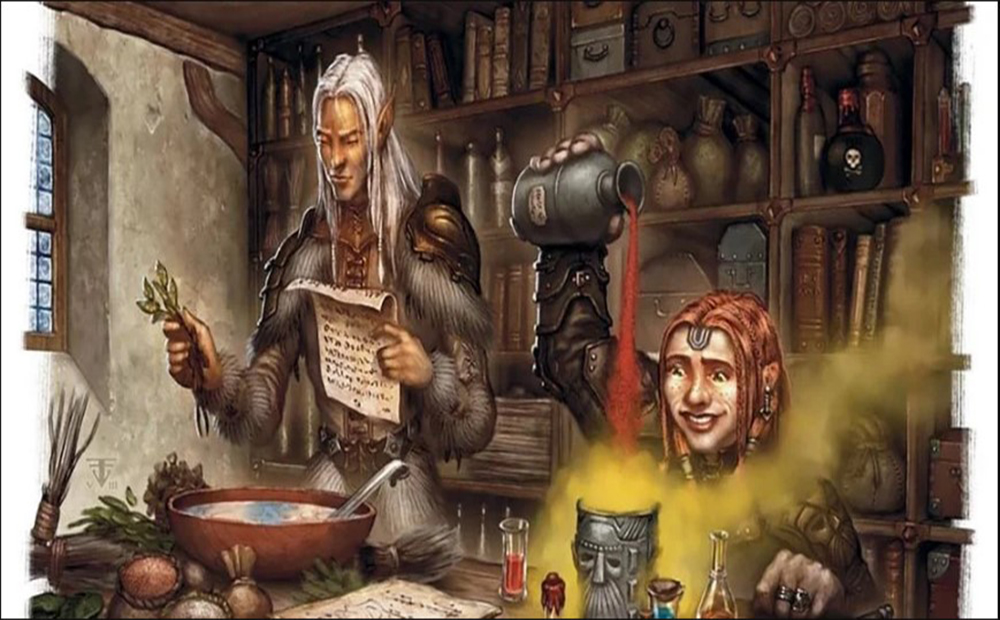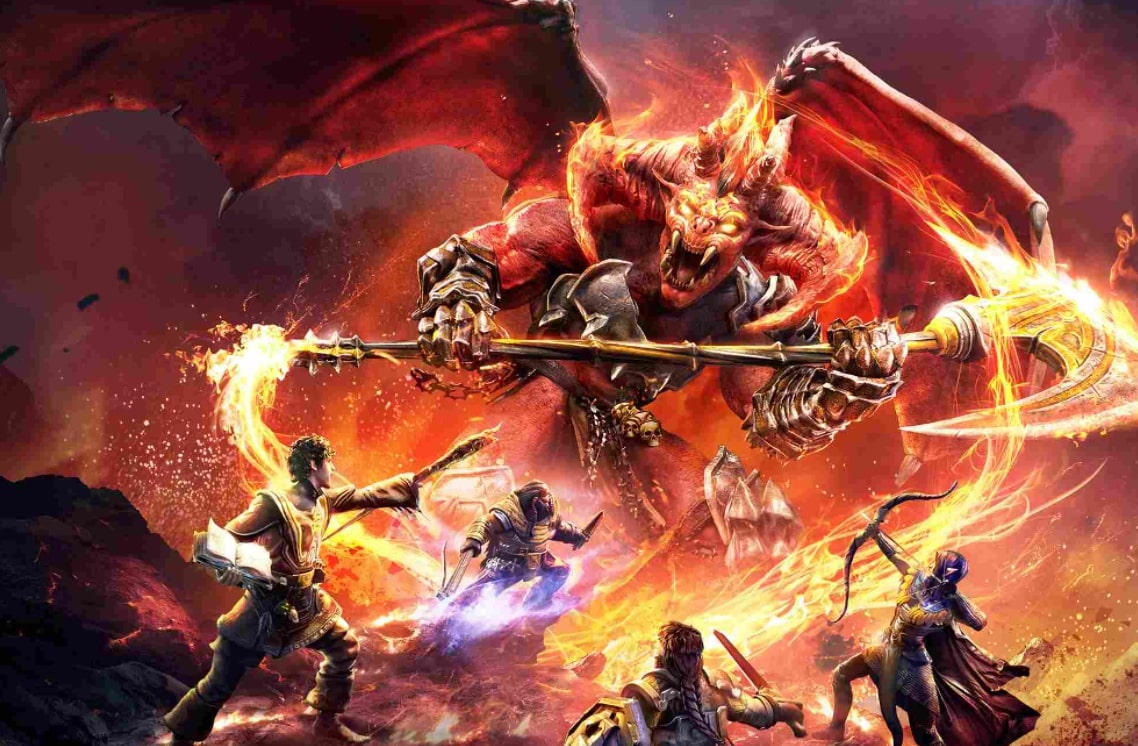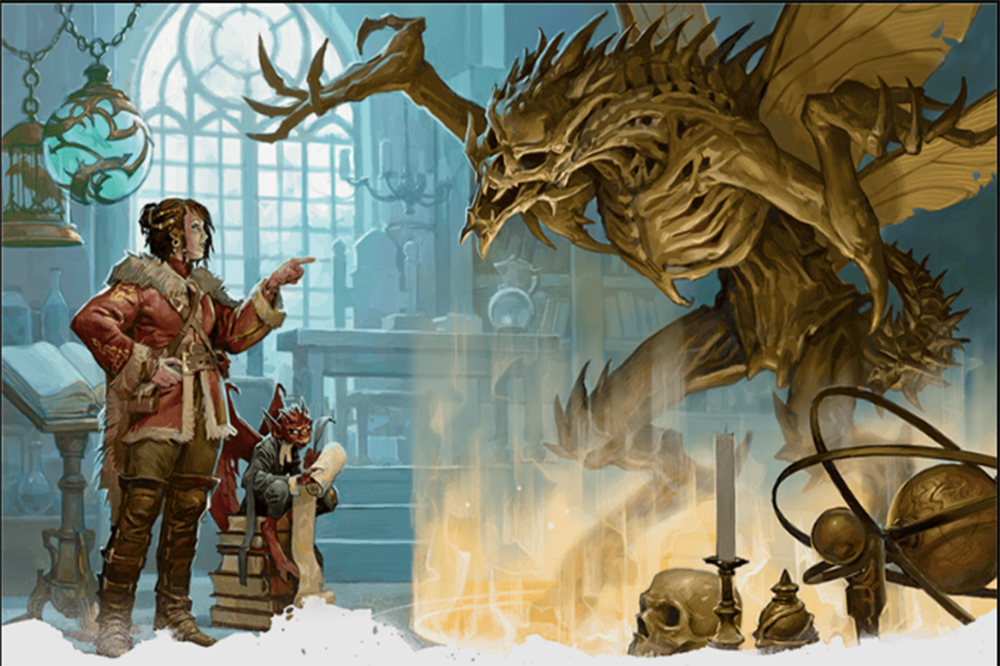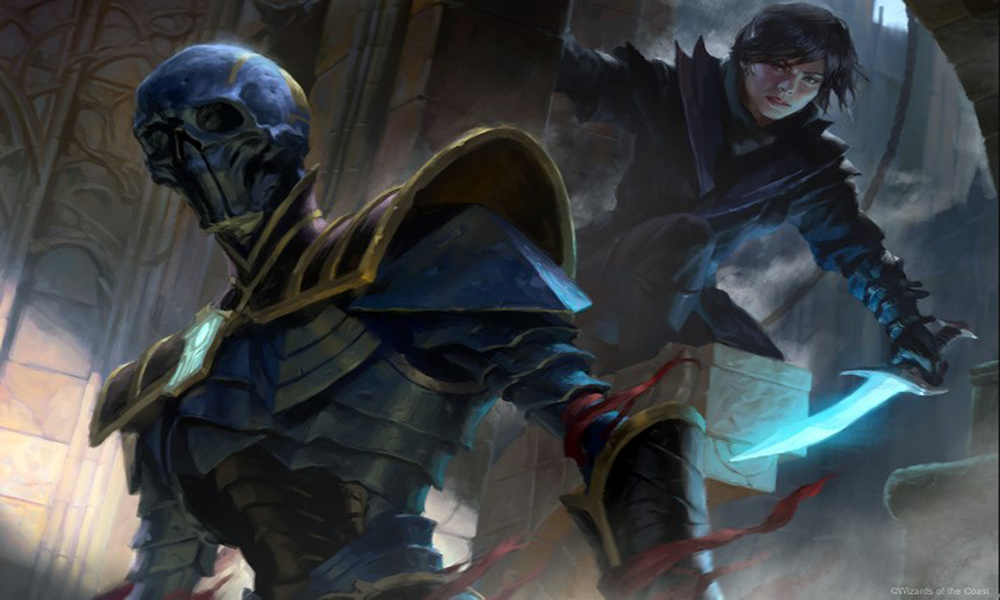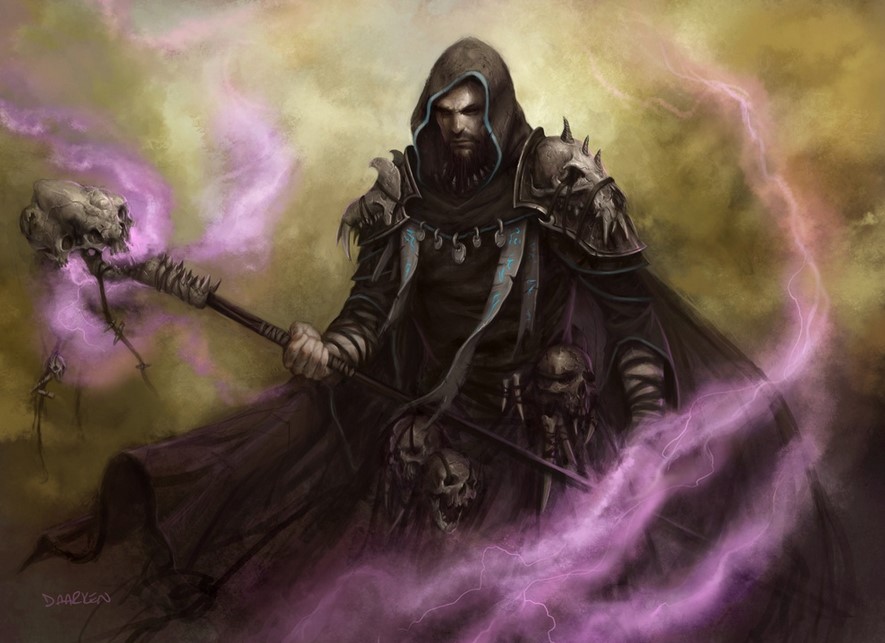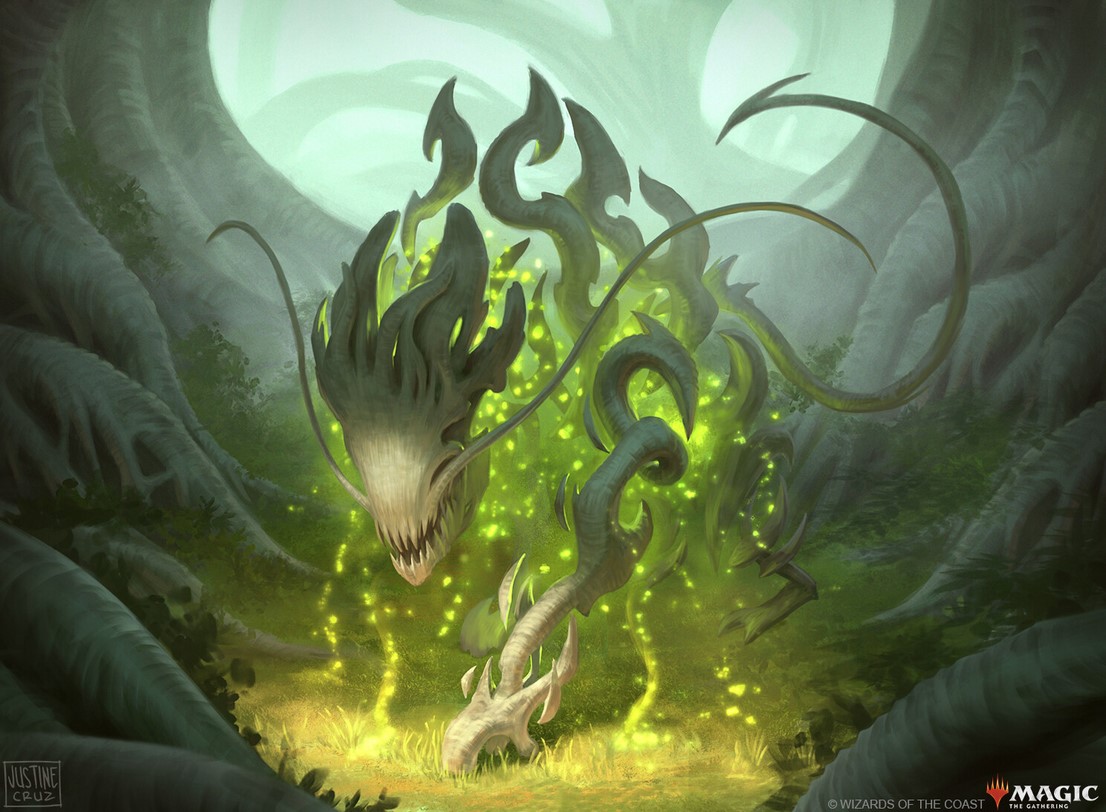
A bark-covered half-orc keeps to the fringe of battle, confounding foes with the power of nature.
With a toothy grin, the naked Halfling charges towards the edge of the cliff, transforming into a giant whale at the last second, raising a curtain of water as it sails through the ocean.
Amidst a field of wounded soldiers, a merciful elf whispers to the earth and the trees to ease the pain of the dying, bringing them respite and healing.
Druids are one of 5th Edition Dungeons & Dragons' most iconic classes and a common fan favorite, wielding nature-themed magic and gaining the unique ability to change into various animal forms.
As Varied as the Land.
Whether you are a devoted spell-caster that stays behind the frontline, allowing companions and summoned creatures to fight while you rain mystical might or a tooth and nail warrior who spends more time as a beast than a man, druids come in every flavor.
Playing a druid can be tough. Preparing some spells from a vast list, poring through the best beasts to turn into at a moment’s notice and, as if it weren’t enough, every druid circle offers so much flavor that every single choice can put a druid world apart from another.
Druids are an exceedingly powerful class, capable of fulfilling any role satisfactorily, so rather than focusing on which subclass is better (for they are all great), we’ll help you settle what type of tree-loving champion might be your spirit animal with a review of every circle.
Keep in mind that these opinions are by no means orders, you are free to adapt and roleplay any kind of druid as you see fit, so we’ll focus on the mechanical aspect of the subclasses to help you find those that fit your character concept.
1. Circle of Dreams.

Blessed by the courts of the fey with their balms and hidden paths, these druids can be an asset for any party lost in the wilds or the need of a healer.
Found in Xanathar's Guide to Everything, druids of the circle of Dreams’ kit revolve around healing their allies, keeping them safe in the wilderness, and being an overall support spell-caster that makes sure the party comes back alive after every adventure.
What the Circle of Dreams Is Useful For.
- Extra Healing: Thanks to their Balm of the Summer Court feature, these druids can become potent healers without even spending spell slots, boosting your party’s survivability.
- Wilderness Exploration: From creating safe shelter to teleporting allies through forests and swamps, the Circle of Dreams provides an ample kit of survival options to guide your party.
Choose the Circle of Dreams if...
- You enjoy being a dedicated healer.
- You want to focus on the support aspect of spell-casting.
- Exploration and survival interest you more than raw combat prowess.
Circle details: http://dnd5e.wikidot.com/druid:dreams
2. Circle of the Land.

From hidden groves and sacred circles, they revel in the mysteries of the elements, unraveling the old magic that permeates the natural world and weaving it at their command.
The Circle of the Land can be found in the Player’s Handbook. These spiritual guides are dedicated Spell-casters who, even among druids, hold a special connection with the land they protect.
Thanks to their Circle Spells and Natural Recovery features, these sages have plenty more Spells to play with than other druids, being at home in dark swamps or blazing deserts, they master the land they walk to be prepared for anything.
What the Circle of the Land is Useful for.
- Bonus Spellcasting: Circle of the land druids gains extra spells to choose from paired with the ability to recover expended spell slots through the adventuring day.
- Master of the wilds: As they grow in power, so does their mastery over the land. Eventually, they ignore difficult terrain and make it difficult for beasts and plants to fight.
Choose the Circle of the Land if…
- You want to focus on spell-casting.
- The idea of being a wise hermit interests you.
- You are drawn to adventure by a bond with something bigger than mortal concerns.
Circle details: http://dnd5e.wikidot.com/druid:land
3. Circle of the Moon.

Druids of the Circle of the Moon are as changeable as the satellite they draw their powers from, bolstering their ability to assume the shape of a beast and taking it to its utmost limit.
If you want a melee-oriented Druid whose sole focus is to rip and tear through the enemies with a plethora of Hit Points, this subclass found in the Player's Handbook is for you.
Starting with Combat Wild Shape and Circle Forms, this subclass specializes in making your Wildshape more powerful as you turn into even more dangerous beasts.
What the Circle of the Moon is Useful for.
- Potent Wild shapes: You get a wider array of beasts to choose from as you level up, opening a fan of possibilities to tackle any situation.
- Tooth and Claw: Since you become more ferocious beasts, you can wade in the melee and come out on top with your superior savagery.
- Endurance: Because of how Wildshape works, you will have several pools of Hit Points to burn through before falling into combat.
Choose the Circle of the Moon if…
- You want to charge to the frontline as a mass of Hit Points.
- The versatility of turning into almost any beast you can find calls to you.
- You truly enjoy basking in the light of the full moon.
Circle details: http://dnd5e.wikidot.com/druid:moon
4. Circle of the Shepherd.

Found in Xanathar's Guide to Everything, Shepherd druids are at home far from civilization, spending their days in the company of animals, leading them in their quests against darkness.
Shepherd druids are a breath of fresh air as their skills focus on a more support-based battlefield control as well as managing summoning creatures, perfect for those who want to feel like the monarchs of beasts!
What the Circle of the Shepherd is Useful for.
- Force Multiplier: Thanks to their ability to call the aid of spirits and summon empowered beasts, these druids can turn the tide of battle with their effects.
- Crowd Control: With their powerful spells and summoned aid, these druids can dictate the flow of battle by repositioning enemies or empowering allies.
Choose the Circle of the Shepherd if…
- You like micro-managing pets.
- You enjoy the role of a field manager.
- Supporting friends from afar is your desired playstyle.
Circle details: http://dnd5e.wikidot.com/druid:shepherd
5. Circle of Spores.

Found in Tasha's Cauldron of Everything, these symbiotic druids benefit from an expanded spell list that complements their playstyle as well as a kit geared around melee engagement, changing the way their Wildshape works.
Druids of the Spore can assume the form of a fungal avatar. While in this form they can greatly damage creatures within 10 feet of them, deal extra melee damage, and, since you’re not wild shaping as it is, you can still cast spells!
What the Circle of Spores for.
- Wreaking havoc in the front lines: Thanks to the extra Hit Points provided by their fungal form and the extra damage, Spore Druids are a force to be reckoned with for anyone foolish enough to engage them.
- A mix of Spell and Staff: Since you can still use your spells while in fungal form, you can enjoy the best out of your druid features without sacrificing a playstyle.
Choose the Circle of Spores if…
- You want to play a gish (a character who mixes melee combat and spell-casting) druid.
- Embodying a fungal necromancer is a concept you enjoy.
Circle details: http://dnd5e.wikidot.com/druid:spores
6. Circle of Stars.

Another banger brought by Tasha's Cauldron of Everything, Star Druids are powerful all-rounders who make the most out of their spells while relying on their Starry Form: The ability to harness a constellations power, to fill any role the party might need.
Star Druids can provide ample healing, damage, and support with their kit, complemented by their extra spells.
What the Circle of Stars is Useful for.
- Versatility: Thanks to their Starry forms feature, these druids can easily turn into avid healers, powerful damage dealers, and solid anchors for the party. They shine brightly against the unexpected since they can easily adapt their kit.
Choose the Circle of Stars if…
- Stargazing, astronomy, and extra spells are attractive fields of role-playing for you.
- You like being prepared for any threat at a moment’s notice.
- You enjoy the feeling of power as you dominate the field of battle with magic.
Circle details: http://dnd5e.wikidot.com/druid:stars
7. Circle of Wildfire.

This jewel can also be found in Tasha's Cauldron of Everything, fitting the bill for the “Blaster Caster” role and more.
Druids of Wildfire have two very attractive features: An expanded Spell list and the aid of an elemental summon that enhances their spellcasting prowess!
What the Circle of wildfire is Useful for.
- Medical Artillery: Druids of Wildfire specialize in a dichotomy of spells, healing, and destruction, so you can deliver the hurt to your foes while relieving your allies from it.
- Tag-teaming: Your Wildfire spirit is no pushover, capable of burning down foes and getting you and your friends out of sticky positioning when needed.
Choose the Circle of wildfire if…
- You do not wish to contain your pyromaniac urges.
- Managing pets interests you.
- You want to be both a heavy damage dealer and a powerful healer.
Circle details: http://dnd5e.wikidot.com/druid:wildfire
You may also be interested in:
- The Best D&D Classes (Ranked from Worst to Best)
- Top 25 Best D&D Villains of All Time
- 32 Most Interesting Facts About Dungeons and Dragons!
- 25 Best D&D Games for PC That Every Fan Must Play!
- The 10 Best DnD Streams
- Most Powerful D&D Dragons For Adventurers To Defeat
- Top 10 Best DnD Campaign Ideas
- Top 5 DnD Most Useful Languages
- D&D Top 10 Most Damaging Spells That Obliterate Foes
- Top 15 Most Powerful D&D Spells
- The Best D&D Race for Every Class
- Top 10 D&D Best Quests That Are Amazing
- Top 10 D&D Best Utility Spells
- [Top 10] D&D Best Zombies
- [Top 10] D&D Best Simple Weapons For Killing Foes
- [Top 10] D&D Best YouTube Channels
- [Top 5] D&D Best Tank Builds That Can Withstand Massive Damage

